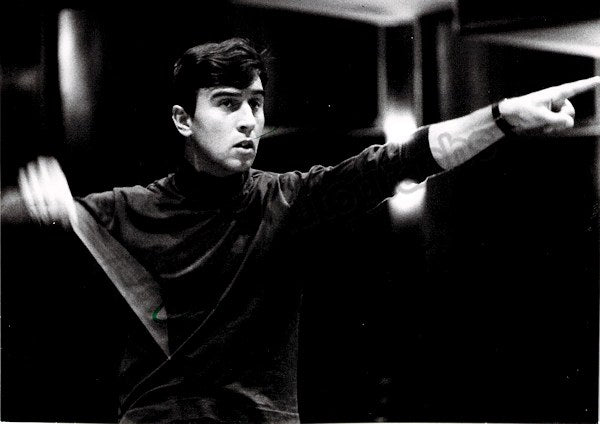Farewell to Claudio Abbado (1933-2014) January 21 2014
Claudio Abbado, one of Italy’s finest conductors of the modern
age, passed away from stomach cancer on January 20, 2014. He left an impact on major orchestras across Europe and in North America, which was preserved on several seminal recordings.
Conducting Career
Abbado came from a very musical family and started his musical education at Milan’s famous Conservatory. He later went on to study at the Vienna Academy of Music. He made an early splash on the classical music scene, winning the prestigious International Serge Koussevitzky Competition the summer after his debut as a conductor in Trieste.
His early success and visiting engagements were followed by a few years during which he struggled to find work and taught chamber music for a while.
Finally, in 1968 he was hired to be the principal conductor at La Scala. He became the music and artistic director at the famous opera house. Later he became the artistic director of the Berlin Philharmonic, the music director of the Vienna Philharmonic, and worked as principal conductor and guest conductor at several other prestigious orchestras.
Claudio Abbado’s musical style blended healthy respect for tradition with an appreciation for modernity. He brought Italian opera to new heights at La Scala and famously refused to record Verdi with any other orchestra.
He was also best known for his renditions of the romantic composer Mahler. However, he was also a champion of modern composers such as Luigi Nono and refused to relegate newer compositions to a secondary place in the world of classical music.
Wherever he went, Abbado acted as a breath of fresh air in the often staid halls of classical music. However, he never did so with arrogance.
Abbado was known and respected for his quiet, almost shy, conducting style. Musicians who worked with him said that they rarely heard him speak because he relied on gestures and a feeling for the music alone.
Claudio Abbado Documentary:
Founding New Orchestras
Besides his work with famous, established orchestras, Abbado also founded several groups that innovated the classical music scene. He was instrumental in the creation of the European Union Youth Orchestra, which gave many young European musicians a shot at a real career.
Abbado dedicated himself to his young players as much as he did to the seasoned professionals that clamored to work with him at Europe’s famous opera houses and orchestras.
During the last years of his life, when he was battling stomach cancer, Abbado founded the Lucerne Festival Orchestra, which gathered many of his friends from the musical world. They were motivated by a love of music and friendship for the great man himself.
Personal Life
Claudio Abbado married twice, to Giovanna Cavazzoni and Gabriella Cantalupi. He had four children by three different women.
The Abbado family was a well-renowned, musical family in Milan. They were also staunch anti-fascists. Abbado’s mother was arrested for hiding a Jewish child during World War II, and Abbado himself narrowly escaped trouble for writing anti-fascist graffiti during the Nazi occupation.
SEE ALSO:
- Abbado, Claudio - Signed Photo Postcard
- Abbado, Claudio - Signed Program 1977
Interested in authentic autographs?

Newsletter Signup
Subscribe to our Newsletter!


